In today's digital age, understanding the ins and outs of content licensing has never been more crucial for creators and businesses alike. Whether you're looking to protect your original work or tap into new revenue streams, having a strong grasp on licensing agreements can make all the difference. This article will guide you through the essentials of digital content licensing, simplifying the legal jargon into clear, actionable insights. So, let's dive in and explore how you can navigate the world of content licensingâread on!
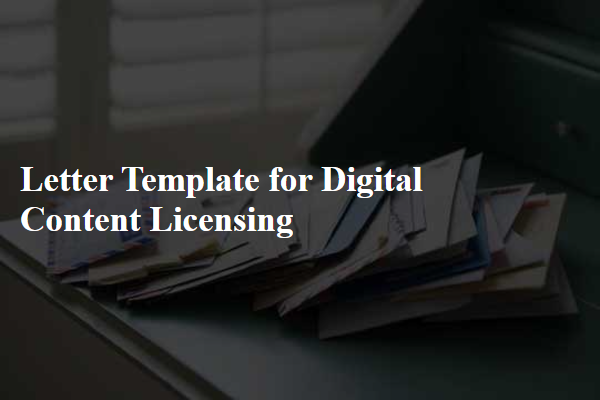
Licensing Terms and Conditions
Digital content licensing agreements outline the legal framework governing the use and distribution of digital content, which can include articles, images, videos, or music. Licensors, typically creators or publishers, establish terms that define usage rights, limitations, and payment structures. Users, such as individuals or organizations, must adhere to specified conditions, which can include restrictions on modification, geographical limitations, or duration of use. Key elements often include types of licenses (exclusive, non-exclusive), royalty structures (one-time fees, recurring payments), and termination clauses that determine conditions under which the agreement can be ended. Understanding these aspects is critical for both parties to ensure compliance and protect intellectual property rights.
Content Usage Rights
In digital content licensing agreements, content usage rights play a crucial role in defining how intellectual property, such as images, videos, or written materials, can be utilized by a licensee. These rights can include various parameters like duration, territory (specific regions such as North America or Europe), and purpose (commercial use vs. personal use) of the content. License fees may vary depending on these aspects; for instance, a popular stock image might have a higher fee for exclusive rights compared to non-exclusive usage. Clear stipulations regarding attribution requirements, alterations, and distribution channels are essential to prevent legal disputes. Additionally, the agreement may outline termination clauses for breaches, ensuring that content creators retain control over their works while providing clear guidelines for usage by others.
Compensation and Royalties
Digital content licensing agreements often include crucial details regarding compensation and royalties. Compensation structures typically outline the payment models, such as upfront payments, ongoing royalties, or revenue-sharing agreements. For example, a popular music licensing deal may include an upfront fee of $5,000 with an additional 10% of gross revenue for any commercial use, applicable for a duration of five years. Royalties need to be carefully calculated based on various factors, including sales volume, distribution channels, and duration of use. Additionally, clear definitions of 'net revenue' or 'gross income' are essential to avoid disputes. Reporting periods and payment schedules may be set quarterly or annually, depending on the agreement's complexity and the parties' specific requirements. Ensuring transparency in the calculation process fosters trust between content creators and licensees, facilitating long-term partnerships in the digital content landscape.
Termination and Renewal Clauses
Digital content licensing agreements often include termination and renewal clauses critical for both licensors and licensees. Termination clauses outline specific conditions under which either party can cease the agreement, such as breach of contract, failure to comply with usage guidelines, or changes in ownership of the content. These can specify notice periods, often ranging from 30 to 90 days, allowing time for corrective actions. Renewal clauses, on the other hand, detail the process for extending the agreement, including renewal terms, duration of extensions, and any adjustments to licensing fees based on market conditions or content demand. Clear delineation of these clauses safeguards both parties' interests and ensures continued access to valuable digital assets.
Intellectual Property Ownership
Digital content licensing agreements require clear stipulations regarding intellectual property ownership. The creator of the content retains ownership of all intellectual property rights, such as copyrights and trademark rights, associated with the digital materials produced, including images, videos, graphics, and written content. Licensing agreements should specify the duration of the license (typically ranging from one to five years), geographical scope (covering local, national, or international markets), and the extent of usage rights granted to the licensee, which may include reproduction, distribution, and public display of the content. A well-defined licensing fee structure must be incorporated, highlighting initial payments, royalties, or milestone-based payments. Additionally, clarity regarding restrictions on alterations or derivative works is crucial to protect the original intent and style of the content. Clear termination clauses should also be included to outline conditions under which the agreement can be dissolved.

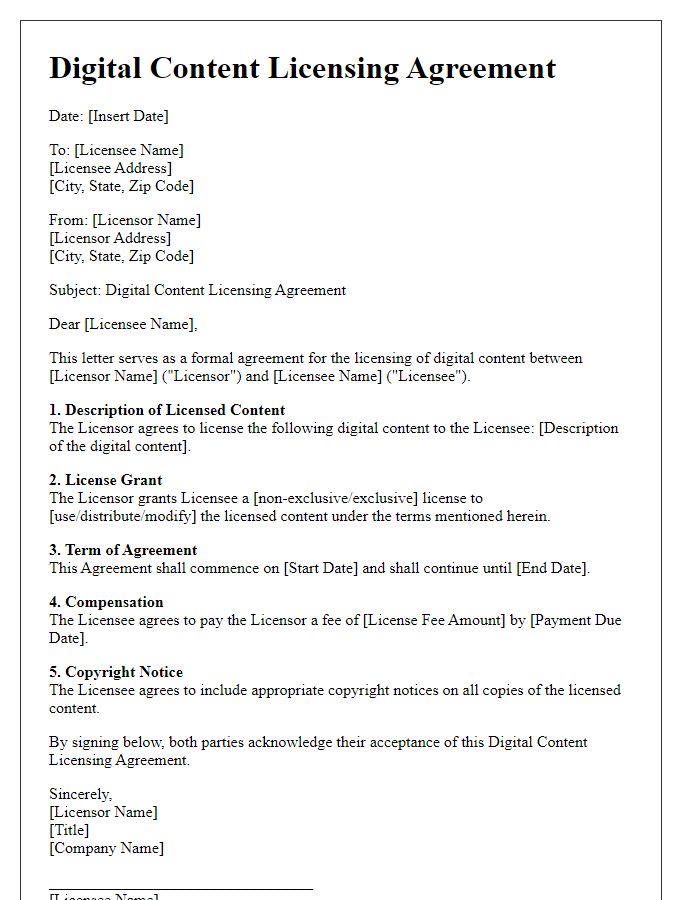
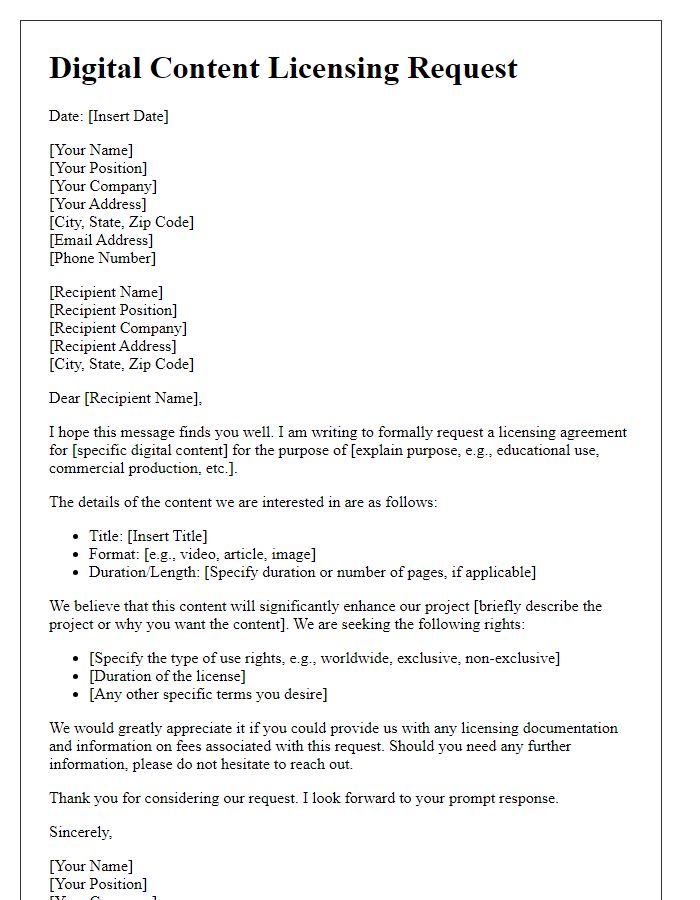
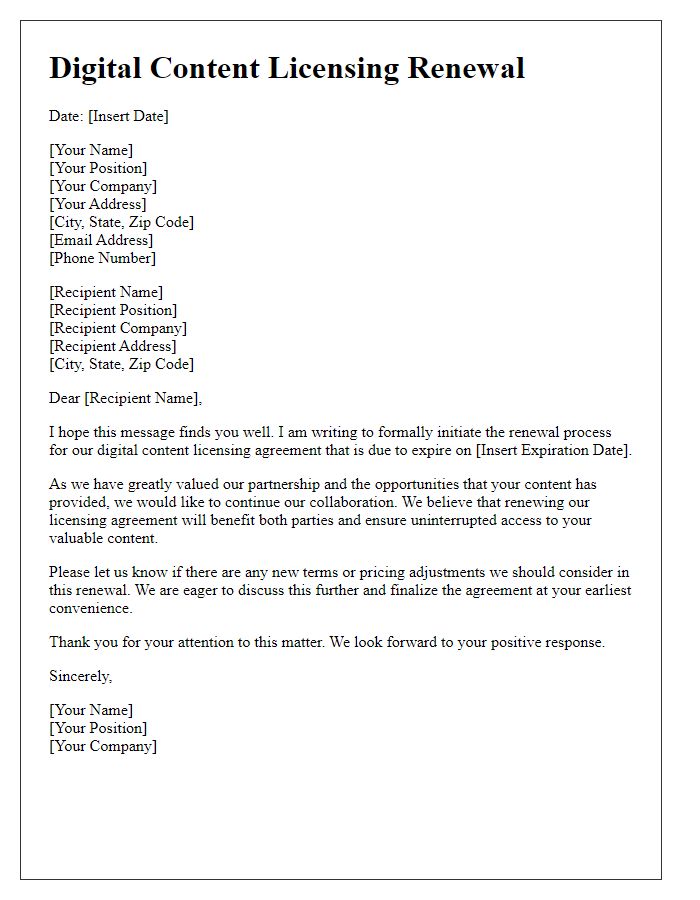
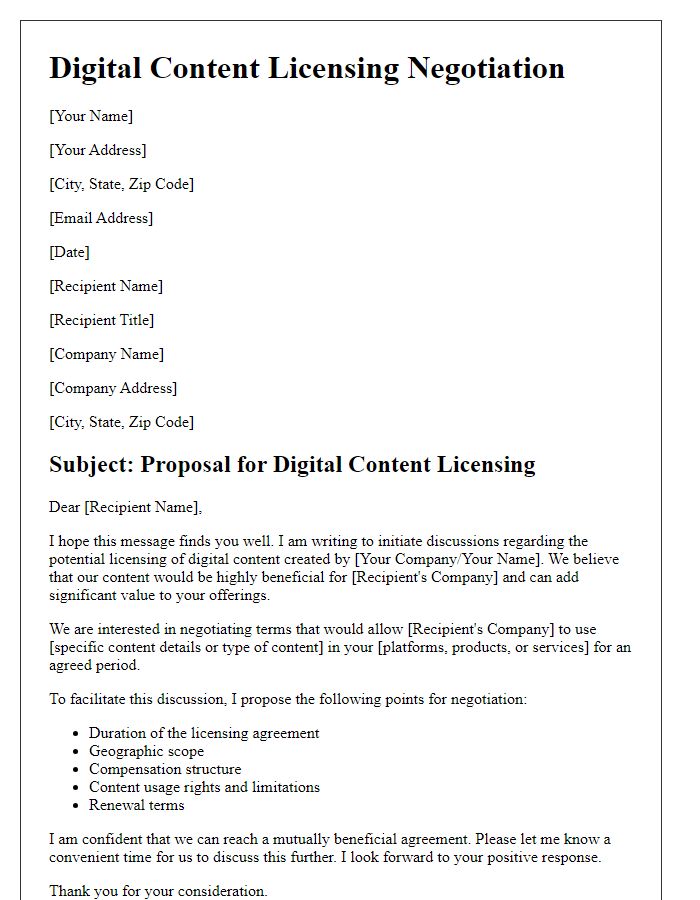
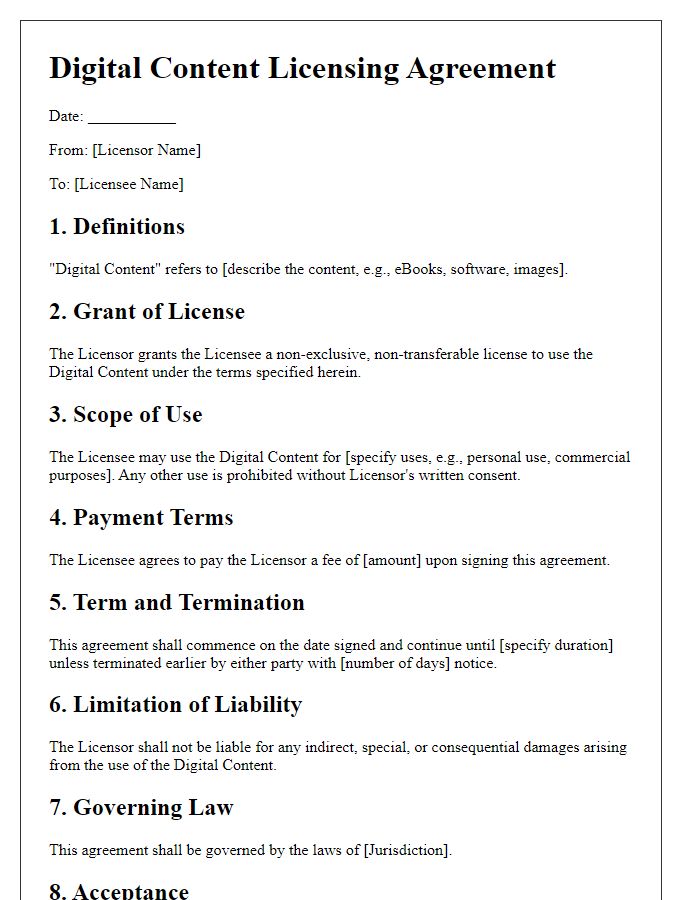
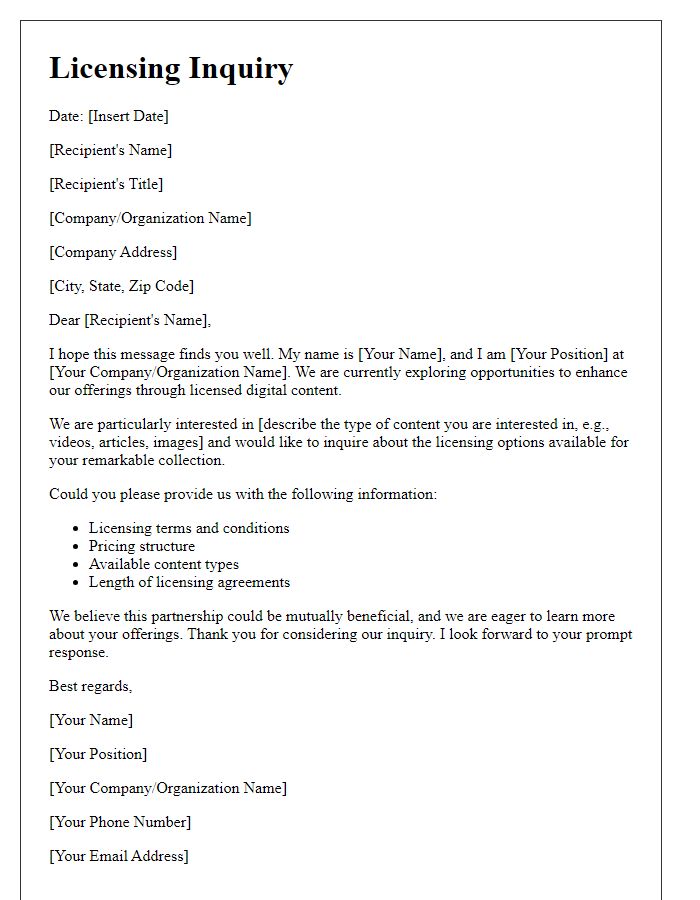
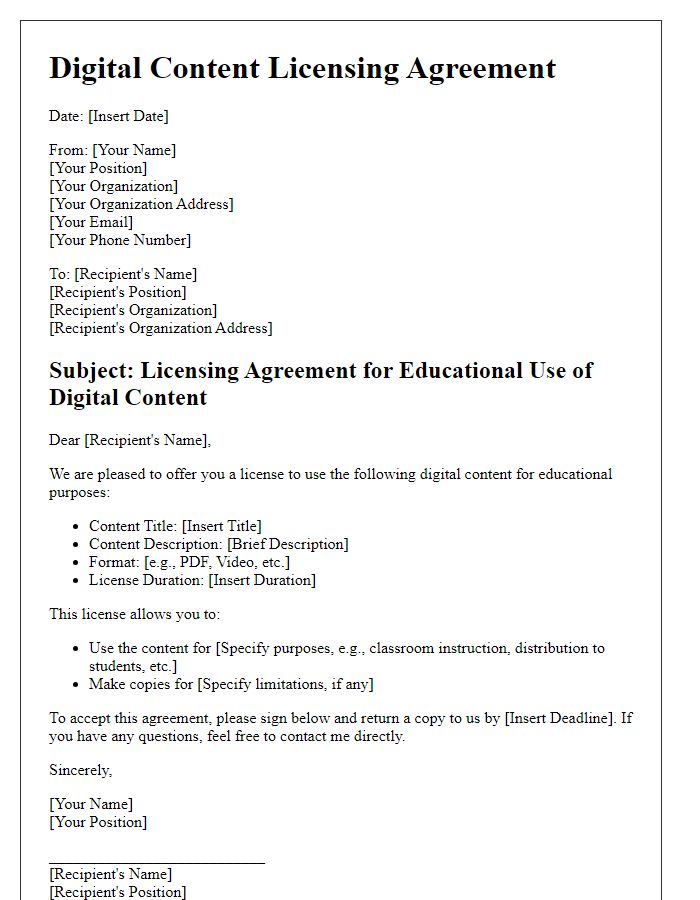
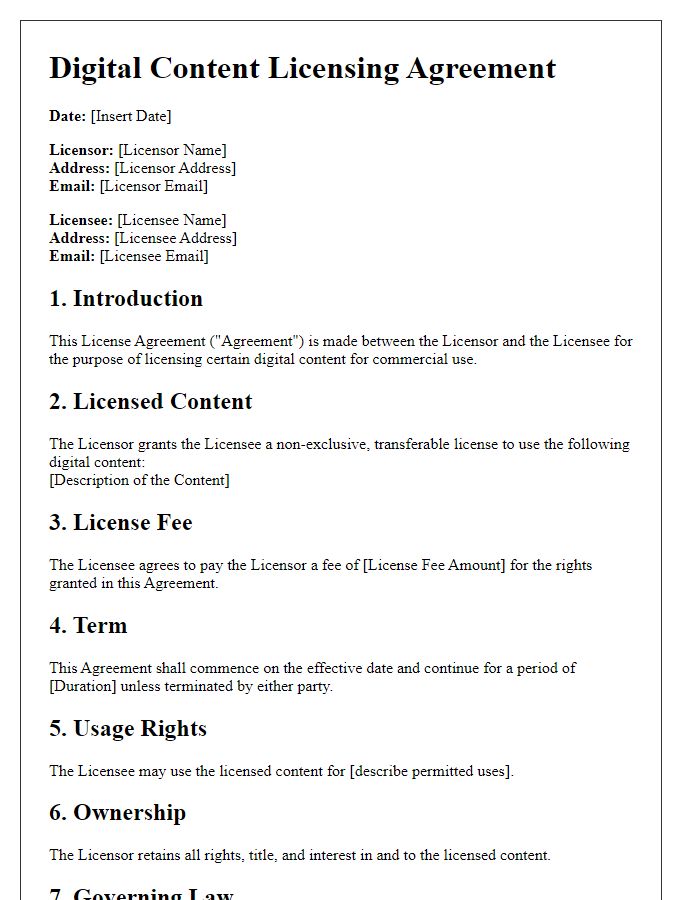
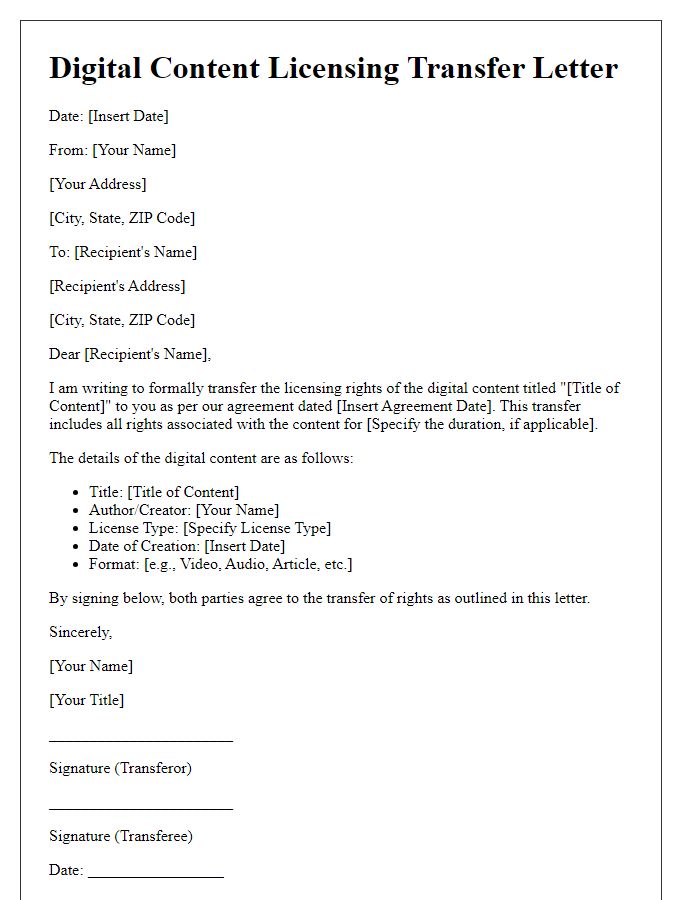
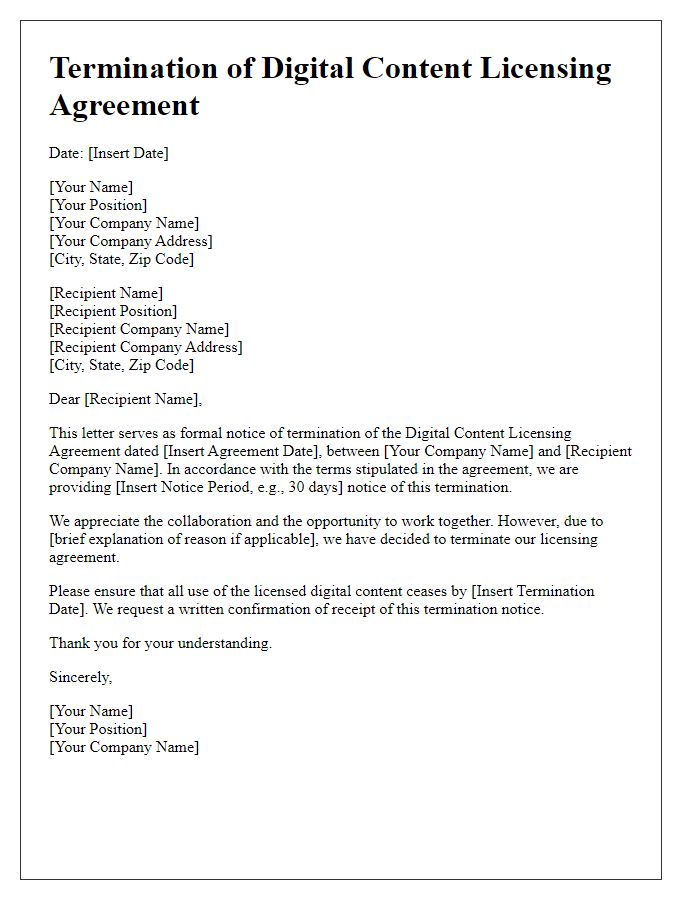


Comments